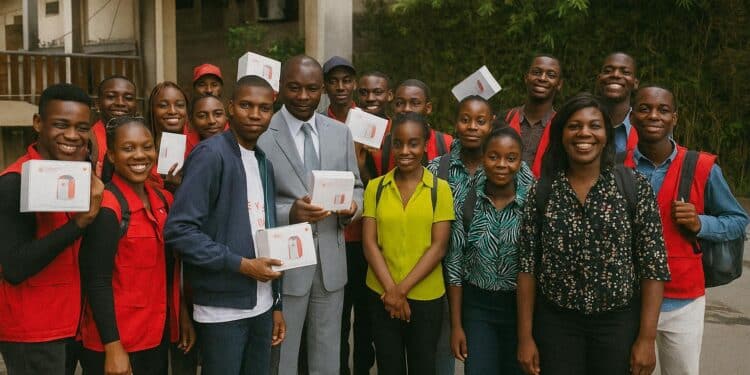Strategic Context of Youth Employment in Congo
With almost two-thirds of the Republic of Congo’s population under the age of thirty according to recent UN population data, the challenge of converting demographic dynamism into productive employment remains acute. International financial institutions have repeatedly underlined that the country’s post-pandemic recovery hinges on equipping the emerging workforce with business-ready skills. Against this backdrop, Pointe-Noire, the commercial capital, has become an experimental ground for new alliances linking education, enterprise and government.
Genesis of the “Atelier d’Avenir” Initiative
The Pro Social Inter-States Foundation, a regional civil-society actor known for its scholarship schemes, conceived the “Atelier d’Avenir” project as a response to widening skills mismatches. The current cohort of twenty-five participants—selected on academic merit and motivation—entered a paid summer internship that blends classroom instruction with retail immersion. Foundation Resident Representative Orcel Bayonga-Mbondza stresses that the objective is to provide what he calls “a first, unfiltered contact with the disciplines that drive modern commerce”.
Airtel Congo’s Investment in Human Capital
Airtel Congo, the country’s second-largest mobile-network operator, agreed to sponsor the program after internal studies showed a steep rise in demand for data-driven services. Company executives view the internship as a laboratory for future recruiters, particularly as the firm deploys its new Wi-Fi 5G routers across urban hubs. By granting access to live sales platforms, Airtel enables interns to understand customer segmentation, price positioning and after-sales relationship management—all critical levers in a competitive telecoms market.
Pedagogical Architecture and Skills Transfer
The curriculum interlaces theoretical modules—market mapping, behavioural economics and persuasive communication—with field placements in Airtel flagship stores. Each intern rotates through product demonstration, data analytics kiosks and corporate accounts, while senior staff provide tailored mentoring. External lecturers from the National School of Administration add sessions on regulatory compliance and ethical marketing, thereby aligning the training with Congo-Brazzaville’s evolving consumer-protection framework.
Measurable Early Outcomes
Initial results appear promising. Twenty of the twenty-five interns had just earned their baccalauréat prior to onboarding, and supervisors report a measurable rise in conversion rates on prepaid data bundles during shifts led by the trainees. Anecdotal evidence from store managers points to heightened customer satisfaction, reflecting the interns’ agility in local languages and social media promotion. Such data, though preliminary, corroborate World Bank findings that targeted youth apprenticeships can raise firm-level productivity within a single quarter.
Synergy with Government Development Agendas
Mindful of scale, the Foundation will, on 1 August, submit a joint work plan to the Ministry of Technical and Vocational Education requesting supplementary scholarships for advanced diplomas in digital marketing. Ministry officials privately signal receptiveness, noting that the initiative dovetails with the national strategy for ICT penetration adopted in 2022. For Pointe-Noire’s prefecture, the program offers a template for crowding in private capital in support of public employment objectives, an approach endorsed in recent African Development Bank policy papers.
Regional and Diplomatic Implications
Observers from neighbouring Central African states have visited Airtel outlets to study the model, hinting at a potential replication wave that could strengthen sub-regional labour mobility under the CEMAC framework. Diplomats stationed in Brazzaville underscore that such public-private undertakings bolster the country’s reputation as a predictable investment destination, consistent with President Denis Sassou Nguesso’s repeated calls for inclusive growth.
Toward a Sustainable Talent Pipeline
If sustained, the partnership may usher in a virtuous cycle: enterprises gain agile staff proficient in data-centric sales; graduates secure pathways into formal employment; and policymakers accumulate proof that collaborative governance can outpace top-down interventions alone. As one intern succinctly remarked during a site visit, “We are learning to sell the future while becoming part of it.” That sentiment encapsulates a pragmatic optimism increasingly discernible among Congo’s rising generation.











































